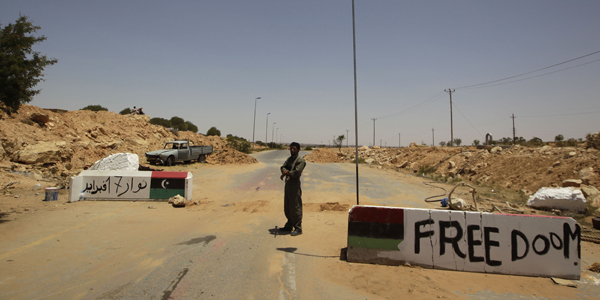
From James Joyner, The Atlantic: If NATO has a plan for achieving victory in Libya, it has been well disguised. Regardless, the world’s most powerful military alliance will surely somehow, some day prevail over a besieged dictator with little support. But is NATO prepared for what happens when they win?
Secretary General Anders Fogh Rasmussen took to Twitter last week to proclaim, "Once political settlement is reached, I don’t expect NATO to play leading role" and "Future to be shaped by Libyan people. NATO will support international efforts if requested and needed."
The United States has joined more than 30 countries in recognizing the rebel Transitional National Council as Libya’s legitimate government. So, unlike in Iraq eight years ago, there is a group in place over which to turn nominal control once the regime is deposed. But simply declaring a new government does not mean that it can run the country.
[…]
After a decade of war and overseas occupation, this reluctance is understandable. Additionally, while happy to have Western help in the fight against Qaddafi, the Libyans are likely to come to resent any long-term presence of European forces in their country.
Putting a different face on the post-conflict stabilization efforts would be ideal, then, even if Western nations have to pay for it. The obvious candidates are the United Nations and the African Union, both of which have extensive experience in peacekeeping missions and would come without imperialist baggage.
Peacekeeping, of course, requires that there be a peace to keep. As the ongoing UN missions in Liberia and Ivory Coast demonstrate, blue helmets are not a panacea. If the mere presence of trained outside security forces is insufficient to prevent the outbreak of sectarian fighting, the peacekeepers then get caught in the crossfire. If they choose sides and shift into kinetic operations — for which they tend to be ill-equipped to begin with — they can often lose their legitimacy.
In theory, this would all have been worked out before NATO intervened, thus taking ownership of the outcome. And it’s possible that someone, somewhere planned all this out. But, if they did, they’ve been awfully quiet about it.
James Joyner is managing editor of the Atlantic Council and writes at outsidethebeltway.com
Photo: Reuters
Image: post-gaffafi-libya.jpg
